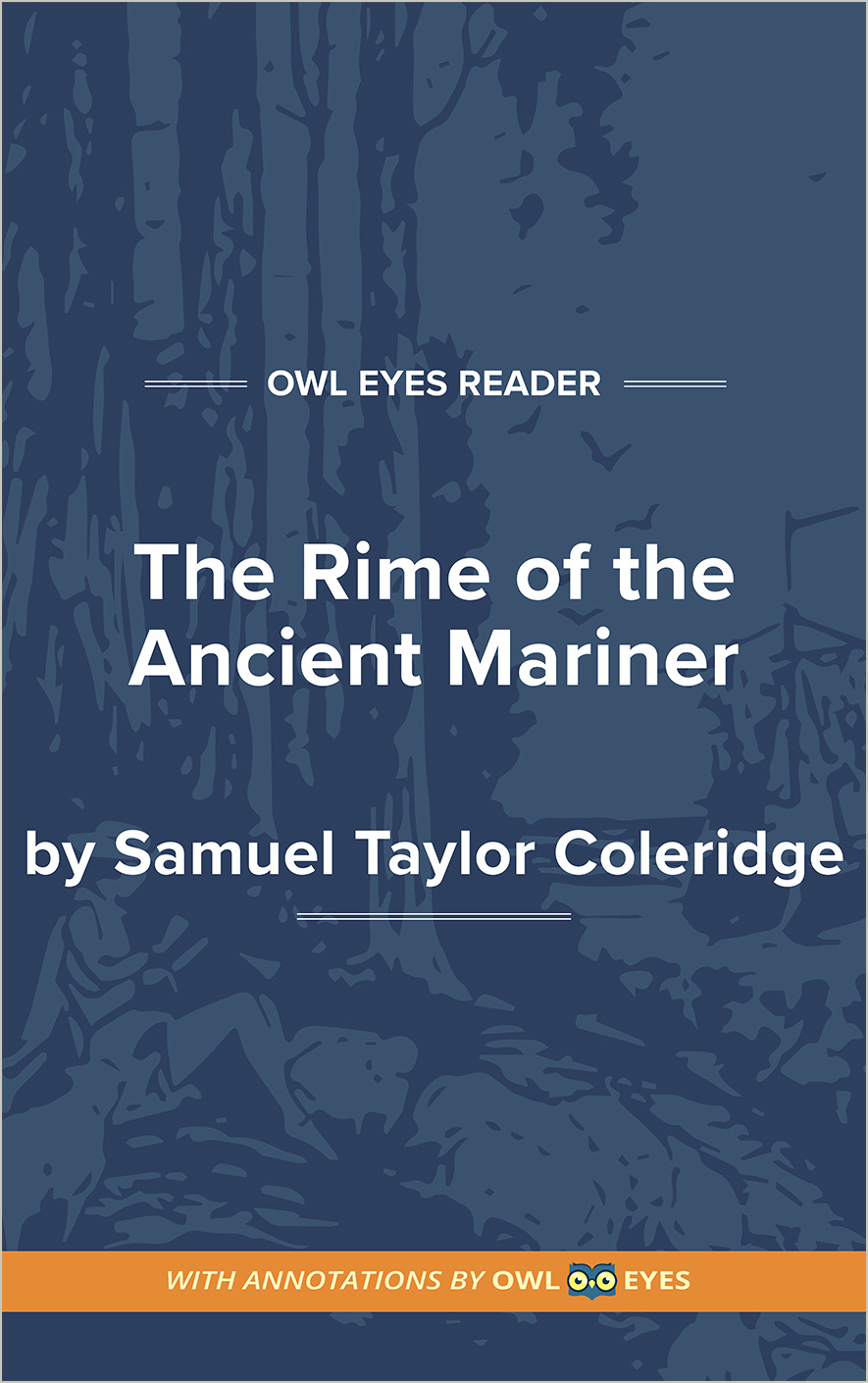Analysis Pages
Themes in The Rime of the Ancient Mariner
The themes throughout this poem are primarily Christian-based and focus on sin, suffering, and eventual absolution.The core theme is that every creature has value, simply because their existence is indicative of God’s love and power. This theme informs the majority of the tale, coupled with the cautionary assertion that pride is man’s greatest sin and is what prohibits him from developing a spiritual relationship with God. If a man sins, the only true way for him to atone for his crime is to confess and commit sincere acts of penance, and only then may he be recused. Another key theme is the presence of supernatural spirits who influence the natural world by intervening in the lives of men. The presence, and actions, of these beings defy human understanding.
Themes Examples in The Rime of the Ancient Mariner:
The Rime of the Ancient Mariner in Seven Parts
🔒"He prayeth best, who loveth best..." See in text (The Rime of the Ancient Mariner in Seven Parts)
"The Mariner hath his will..." See in text (The Rime of the Ancient Mariner in Seven Parts)
"Nor shapes of men nor beasts we ken—..." See in text (The Rime of the Ancient Mariner in Seven Parts)

